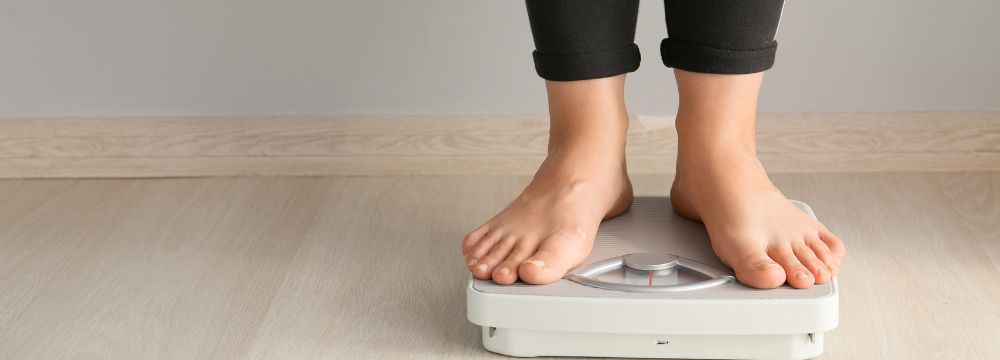Blog Archives
SAMPA’S Surgeons Are 2024 Nappie’s Finalists

It’s that time of year again – Nappie Time! We are thrilled to announce that Dr. Barry Ballard Jr., Dr. Forrest Ringold, and Dr. Dusty Smith have been nominated for Best General Surgeon, while Dr. Jeffrey Hannon, Dr. Timothy Mansour, and Dr. Forrest Ringold have been nominated for Best Weight Loss Doc-Surgical. We take immense pride in our nominated doctors and wish them the best of luck.
We invite you all to vote and help spread the word about this excellent team of care providers. We appreciate all of your votes, each one truly does make a difference.
How Often Should You Go to the Gym (And What to Do) After Bariatric Surgery?

After bariatric surgery, you enter an exciting time in your life. You’ve had surgery, and the weight is starting to come off, probably quite rapidly. Most patients wish to build on this excitement by hitting the gym hard and enhancing their results. That said, it’s often difficult to know, especially if you weren’t a gym-goer earlier in life, how often to go and what exercises you should perform when you get there. Mind you, early on after bariatric surgery, we do not want you going to the gym and lifting heavy weights. It will take about 6 to 8 weeks before you are cleared to do so. We also know many patients will be intimidated by the gym. This is perfectly normal. Just getting up and going is an achievement in and of itself. Even if you do minimal strength training in the beginning, you’ll soon feel comfortable and start building up your routine.
With this in mind, it’s important to set proper expectations. It takes about 4 to 6 weeks of consistent gym work to see the results of your efforts. Unfortunately, many people quit before they reach that point. You’ll also want to note you will likely gain weight in the early days of your strength training regimen. This is because you are building muscle at a faster rate than you are losing fat.
Five Questions to Ask at Your Bariatric Consultation

We see hundreds of patients yearly who go on to have very successful metabolic surgery with one of our bariatric surgeons. Each operation is unique in that every patient is different; their care plan must be tailored to their motivations and ultimate goals. To that end, no consultation is ever the same, even if some of the questions are. To help you prepare for your first consultation, we have listed five questions every patient should ask their surgeon. Remember, the answers to these questions will vary between patients, so if your spouse, friend, or family member has had bariatric surgery, the answer may differ slightly from yours. The answers below are generic but offer a great starting point for a deeper discussion.
Can Long-Term PPI Use Cause Dementia?

Acid reflux is one of the most common digestive concerns occasionally experienced by people the world over. Most people will experience some acid reflux in their lifetime, especially after a heavy meal or eating spicy food. However, acid reflux becomes problematic when patients experience it regularly, at which point it can be considered chronic – known as Gastroesophageal Reflux Disease or GERD. This condition can be very troublesome for the discomfort it causes – often a burning sensation in the chest and throat. Sometimes, the burning in the chest is bad enough that patients believe they are having a heart attack. Beyond that, GERD can cause yellowed teeth, premature wearing of tooth enamel, a persistent dry cough, esophageal stricture, and more. It can even lead to a pre-cancerous condition known as Barrett’s Esophagus. In some cases, this can lead to esophageal cancer, which can be very aggressive and challenging to treat.
What’s Your Ideal Post-Bariatric Surgery Weight? It Depends…

While the term “weight loss surgery” describes a baseline benefit of the bariatric procedures we perform, it doesn’t fully represent the most critical parts of the result – improvement or elimination of obesity and its related diseases or comorbidities, including high cholesterol, high blood pressure, type 2 diabetes, sleep apnea and much more. However, weight loss is such an obvious and easily measured benefit of surgery patients are often primarily concerned with that more than anything else. It would be safe to say most patients bring up their ideal post-surgical weight within the first few minutes of their consultation.
PPIs for Chronic Reflux – Understanding the Risks and Considerations

GERD is very common in modern-day American society. Many millions, by some estimations 20-25% of Americans, suffer from chronic reflux. The prevalence and significant increase over the past decade or two are best explained by the explosion in overweight and obesity in the United States during that time. Ultimately, one of the most common reasons for gastric reflux is intra-abdominal pressure caused by excess belly fat pushing on the stomach and forcing caustic gastric juices into the esophagus, essentially burning its sensitive lining.
Can I Have More Than One Hernia, and Can They Both Be Repaired?

Most patients will realize they have a hernia from the pain and physical bulge associated with the abdominal tissue protruding through the hernia defect. For many, this manifests in a single area of the abdomen, so is it possible to have more than one hernia? The answer is yes, and this is particularly true for inguinal or groin hernias, which affect men far more often than women. As the name suggests, inguinal hernias involve the inguinal canal. We have one on each side of the body. We also know people genetically predisposed to getting an inguinal hernia are more likely to get one in the future – either on one or both sides.
In the past, when hernias were repaired using open techniques, it was comparatively more difficult to repair two hernias on either side of the abdomen. Because of the surgical technology, or lack thereof, we would have to correct one hernia on one side and then move on with new incisions to repair the other. With the advent of laparoscopy, or minimally invasive surgery, and now robotic techniques, we access the abdomen through three small incisions across the abdomen. This allows us to access either side of the abdomen or both, as appropriate.
Easing Into Exercise After Bariatric Surgery

If you’ve just had surgery to lose weight, why do you need to exercise?
You’ve signed up for a life-altering experience, but the surgery is just one piece of the puzzle. Consider it a “tool” to improve and accelerate your weight loss efforts, but it will not be the singular solution.
If you’re still asking why you need to exercise. Here are a few good reasons. By exercising you:
- Develop lean muscle mass and strength.
- Promote the stability of your joints and enhance bone strength.
- Improve your skin’s elasticity and fill out your body, making excess skin less noticeable.
- Help sustain long-term weight loss.
The Downside of Fructose and Why It Matters

There are several ways that sugar is added and ultimately labeled in the products we eat and drink every day. For this reason, it’s essential to discuss how sugar is metabolized in the body and if certain sugars are better than others. For this discussion, we will limit our analysis to the two most ubiquitous forms of sugar: glucose and fructose. Glucose is what you find in granulated sugar, honey, and many other products. It is the traditional sweetener you think of. Fructose, on the other hand, is typically found in fruits and vegetables but is also added to many products in the form of high-fructose corn syrup. You often find these in sodas, processed foods, and even bread products to sweeten them.
Gastric Sleeve Patients – An Important Consideration Around 2 Years

It’s no secret bariatric surgery, including the gastric sleeve, offers an excellent long-term weight loss option for qualifying patients that is more long-lasting and effective than diet, exercise, or even weight loss medications alone. However, you will have heard repeatedly bariatric surgery is not magic, and weight loss and the consequent disease improvement or resolution do not come without hard work on the patient’s part. Further, you may have heard stories from friends or loved ones about someone gaining their weight back, which is certainly possible if you don’t follow your post-op directions, including changing your diet and exercise. Let’s discuss why gastric sleeve patients tend to gain weight a few years after surgery and what to do about it.

